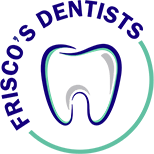We’ve discussed gum disease at some length on this blog, and apparently, it’s a more common dental problem than originally thought, at least it is according to the Centers for Disease Control and Prevention (CDC) and the American Academy of Periodontology (AAP). Recent research from these associations has found that it’s most likely that the prevalence of gum disease has been underestimated by as much as 50%.
What does this mean for all of us? Well, it basically implies that more Americans suffer from a periodontal disease than once thought, which further implies that more Americans do not properly care for their teeth than believed.
The CDC funded a National Health and Nutrition Examination Survey (NHANES) pilot study, which performed a full-mouth, comprehensive periodontal examination of 450 adults over the age of 35. The definition of periodontal disease for the survey standard was defined by the CDC and the AAP. The results of the survey were then compared against findings of earlier NHANES studies–which have always served as the primary source for determining the prevalence of gum disease in the United States.
However, all prior NHANES studies were only partial-mouth examinations, and this new study found that the partial-mouth methodology could have underestimated the prevalence of gum disease by up to 50%.
Periodontal disease is a chronic inflammatory disease that affects the gums and other mouth structures that support the teeth. If it is not treated, it can lead to severe complications such as tooth loss and even heart disease.
Paul Eke, MPH, Ph.D., epidemiologist at the CDC and lead author of the NHANES study, goes as far as to say that the study results have “significant public health implications.” Since research has shown a connection between dental health and overall health, an increase in the prevalence of periodontal disease indicates an increase in the prevalence of risks for overall body health.
This is yet another reason to not only brush and floss your teeth on a regular basis but to also see your dentist regularly for teeth cleanings and check-ups. And while you’re in the dentist chair, always mention any irregularities you’ve noticed with your mouth such as bleeding gums, sensitive teeth, or bad breath. No matter how minor something may seem, it could be a sign of something major.

